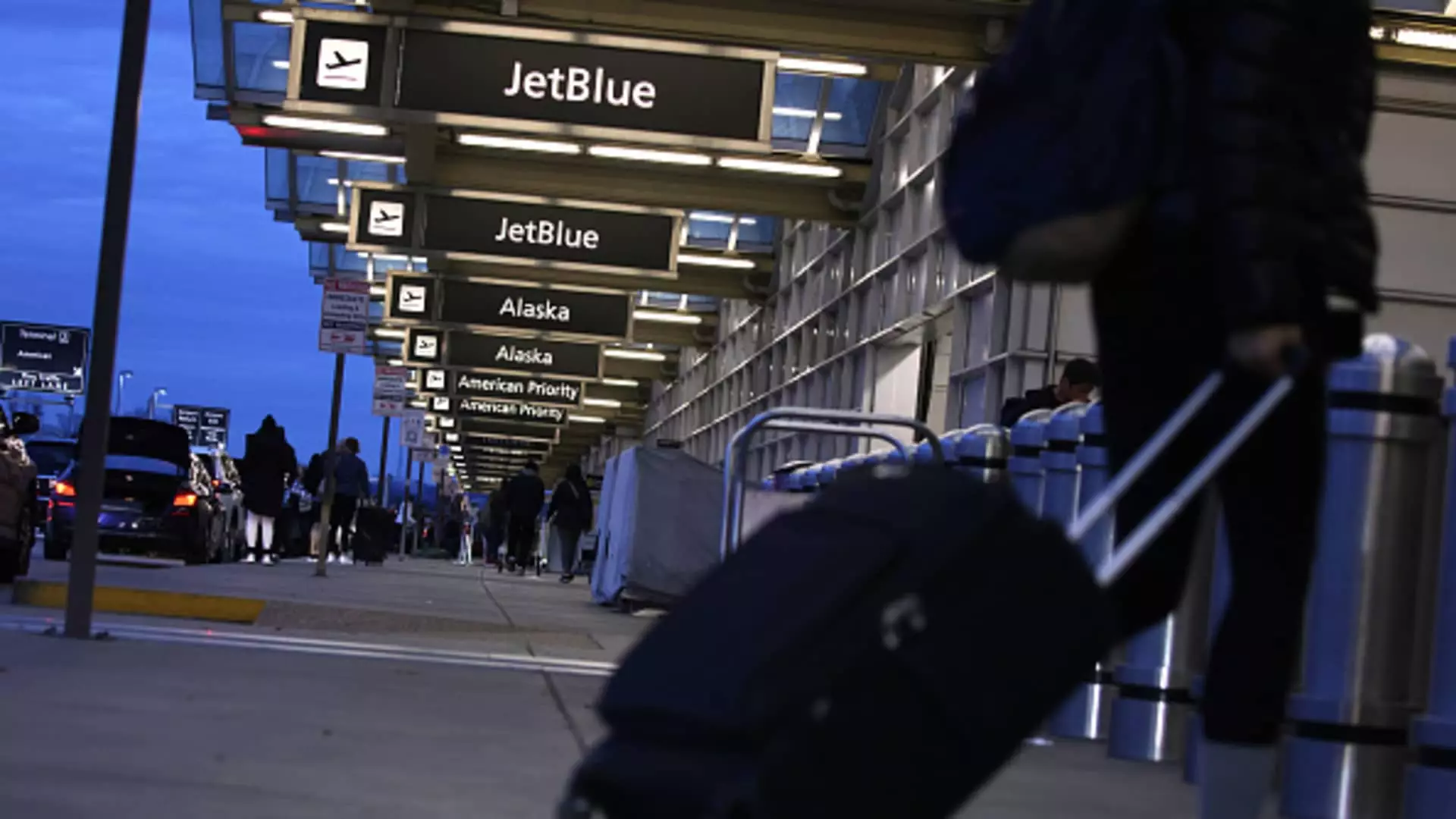In a bid to navigate financial turbulence, JetBlue Airways has initiated a program offering early retirement to select pilots, as communicated by their labor union. This strategic move reflects the airline’s broader efforts to optimize operational costs and adapt to changing market conditions. With the aviation industry grappling with various challenges, including high operational expenses and a significant Pratt & Whitney engine recall affecting several of its aircraft, JetBlue’s decision underscores the urgency to streamline operations while maintaining a competitive edge.
According to a note from the Air Line Pilots Association that was reported by CNBC, JetBlue is opening voluntary separation bids, set to close on February 7. The offer includes a payment equivalent to 55 hours of pilots’ hourly wage, extending until either their mandatory retirement date or a maximum of 18 months post-separation—whichever comes first. This specific approach aims to incentivize pilots nearing retirement while simultaneously managing labor costs for the airline.
As outlined in the letter of agreement, a pilot’s financial package varies based on their experience and projected retirement timeline. For example, an Airbus A320 captain with 12 years of service approaching the federally mandated retirement age of 65 can expect a payout of over $416,000. In contrast, an Embraer E190 captain with eight years of tenure heading into retirement soon would receive approximately $160,000. This structured payout illustrates JetBlue’s intention to provide financial security to long-serving pilots while incentivizing a smoother workforce transition.
This approach not only benefits the individual pilots but also positions JetBlue to better handle its operational challenges. With the airline expecting to announce quarterly results shortly, this strategic cost-saving measure aligns with its goal of elevating revenue through various initiatives—such as integrating new first-class seating across its fleet. The convergence of these strategies allows JetBlue to adapt more effectively to the post-pandemic recovery phase in the aviation sector, where customer experience plays a pivotal role.
Furthermore, this voluntary separation plan speaks volumes about the state of airline labor relations and the ongoing discussions between management and unions. By collaborating on this initiative, JetBlue demonstrates an understanding of the evolving dynamics in the workforce, particularly as pilot retirements approach due to age regulations.
JetBlue Airways’ decision to offer early retirement packages to its pilots is a calculated response to both internal and external pressures facing the airline. Navigating through manpower constraints and financial challenges, this initiative reflects a broader trend in the aviation industry where airlines are compelled to reassess their operational frameworks. As JetBlue reports its financial results, stakeholders will be keenly observing how these strategic moves—driven both by necessity and opportunity—will influence its long-term sustainability and growth trajectory.


Leave a Reply